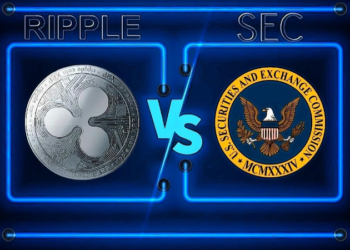FSS’s Proactive Stance
The Monetary Supervisory Service (FSS) of South Korea is currently in the process of formulating additional regulations to complement the recently passed Digital Asset Customers Protection Act, as reported by local sources. These new regulatory measures are expected to be finalized and prepared for implementation by January, demonstrating the FSS’s proactive approach towards ensuring a robust regulatory framework for digital assets.
During an audit conducted by the South Korean National Assembly Political Affairs Committee on October 17th, FSS head Lee Bok-hyeon addressed concerns regarding South Koreans facing financial losses associated with what is colloquially referred to as “burger cash” in Korean slang. This term pertains to cryptocurrencies issued from foreign origins that are actively traded within South Korea.
The move to bolster the existing legal framework surrounding digital assets reflects South Korea’s commitment to safeguarding the interests of its citizens in the ever-evolving landscape of cryptocurrency. By introducing these supplementary regulations, the FSS aims to create a more secure environment for participants in the digital asset market, ensuring that individuals can engage in cryptocurrency-related activities with greater confidence.
This proactive stance underscores the FSS’s dedication to staying ahead of the curve in terms of regulatory adaptation, providing stakeholders with ample time to familiarize themselves with the upcoming changes before they come into full effect. By setting the stage for these regulations well in advance, the FSS aims to foster an environment of compliance and transparency, ultimately contributing to the long-term stability and credibility of the digital asset ecosystem within South Korea.
Lee Bok-hyun, the governor of South Korea’s Monetary Supervisory Service, made an unannounced two-day go to to China final week, marking the primary go to there by an FSS head in six years.https://t.co/tK360ZYnOD
— The Korea Herald 코리아헤럴드 (@TheKoreaHerald) September 7, 2023
The FSS is poised to establish a comprehensive framework encompassing listing procedures, internal controls, as well as the issuance and distribution processes pertaining to digital assets. Additionally, a robust “digital asset market supervision and inspection system” will be put in place, as detailed in the South Korean press coverage of the audit proceedings. Lee further emphasized that these impending regulations are being actively deliberated in collaboration with the Digital Asset eXchange Affiliation (DAXA).
Notably, DAXA comprises prominent local cryptocurrency exchanges including Upbit, Bithumb, Coinone, Korbit, and Gopax. This collaborative effort underscores the industry’s collective commitment to ensuring a well-regulated and secure environment for digital asset trading activities, reflecting a cooperative approach towards fostering transparency, compliance, and investor protection within South Korea’s burgeoning digital asset landscape.
Associated: South Korea focuses on OTC crypto laws as illegal offers attain $4B
Lee emphasized that the legislation enacted in June, while providing a foundation for legal liability in cases of violations, fell short in terms of regulatory intricacies. According to him, the legislation did not confer sufficient authority upon his agency to effectively oversee and enforce compliance within the digital asset sector.
Lee highlighted the need for more robust provisions, particularly in instances where activities such as manipulation of distribution volume through staking or unfair disclosure occur.
He asserted that in such cases, close consultation with DAXA, the Digital Asset eXchange Affiliation, would be sought to ensure a comprehensive and judicious approach to addressing any potential infractions.
This collaborative approach between regulatory authorities and industry leaders underscores a commitment to fostering a regulatory framework that strikes a balance between innovation and investor protection.
Lee’s statement reflects a proactive stance towards refining and strengthening the regulatory landscape, ultimately contributing to a more secure and transparent digital asset ecosystem in South Korea.
This ongoing dialogue with industry stakeholders serves as a testament to the collaborative spirit driving the evolution of regulatory policies in the dynamic realm of digital assets.
“There are associated programs in place within the securities sector for numerous screenings associated to the issuance market, however there aren’t any associated programs in place at DAXA or particular person exchanges.”
South Korean legislation enforcement has introduced plans to determine a joint virtual-asset crime investigation unit referred to as the Joint Investigation Centre for Crypto Crimes. It can have a employees of 30 taken from different authorities companies, together with the FSS, Nationwide Tax Service, Korea Customs Service and others.
The South Korean law enforcement authorities have unveiled their intention to establish a collaborative entity focused on tackling virtual-asset related crimes, named the Joint Investigation Centre for Crypto Crimes. This specialized unit will be comprised of a dedicated staff of 30 individuals drawn from various government agencies, including but not limited to the Financial Supervisory Service (FSS), the National Tax Service, and the Korea Customs Service, among others.
This joint initiative signifies a concerted effort on the part of South Korean law enforcement to pool resources and expertise from different agencies, leveraging a multidisciplinary approach to effectively combat illicit activities within the virtual asset space.
By consolidating the strengths and capabilities of these diverse agencies, the Joint Investigation Centre for Crypto Crimes aims to enhance the enforcement and regulatory framework surrounding virtual assets, ultimately contributing to a more secure and compliant digital asset ecosystem within South Korea.
This collaborative endeavor represents a significant step forward in the country’s commitment to maintaining the integrity and security of its financial systems in the face of evolving challenges posed by the digital asset landscape.








